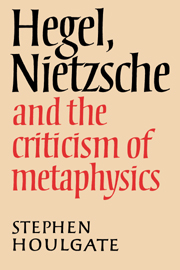Hegel is aware that it is only in the modern world, with the emergence of civil society, that ‘the freedom of property has been recognized here and there as a principle’ (PR § 62R). Nonetheless, he contends, property is made necessary by the very idea of freedom itself. The purpose of this essay is to explain why this is the case by tracing the logic that leads in Hegel's Philosophy of Right from freedom, through right, to property and its use. I conclude by briefly comparing Hegel and Marx on the topic of ‘value’.
Free Will and Right
The first task is to explain why freedom, or the free will, must give itself the form of right (Recht). What Hegel calls ‘intelligence’ is the knowing of what is (PM § 465). Will, in contrast, seeks to realize, and realizes, its subjective aims in the external world. It is, therefore, the activity of giving objective ‘existence’ (Existenz) to the content of its aims (PR § 8; PM § 469). Insofar as will actively objectifies itself in this way, it is ‘self-determining’ and free. Initially, however, its aims are determined by nature, rather than by itself: they are its immediately given needs, drives and inclinations. Accordingly, Hegel maintains, will is at first not fully free, but free only implicitly or ‘in itself’ (an sich) (PR §§ 10–11; PM §§ 471–475).
Will is, however, explicitly free, or free ‘for itself’, insofar as it distinguishes itself in thought from its given drives and inclinations and understands itself to be the power to choose which aims it will realize: the power of Willkür or ‘arbitrariness’ (PR §§ 12–15; PM §§ 476–478). Yet, as such, will is still only implicitly free, since the aims among which it can choose remain determined by nature. Arbitrariness is thus contradictory, even though it is what most people take true freedom to be: for, although it is the explicit and unfettered freedom to choose, it can choose only what is given to it and so is completely dependent on the latter (PR § 15A; VRP 3: 134).
